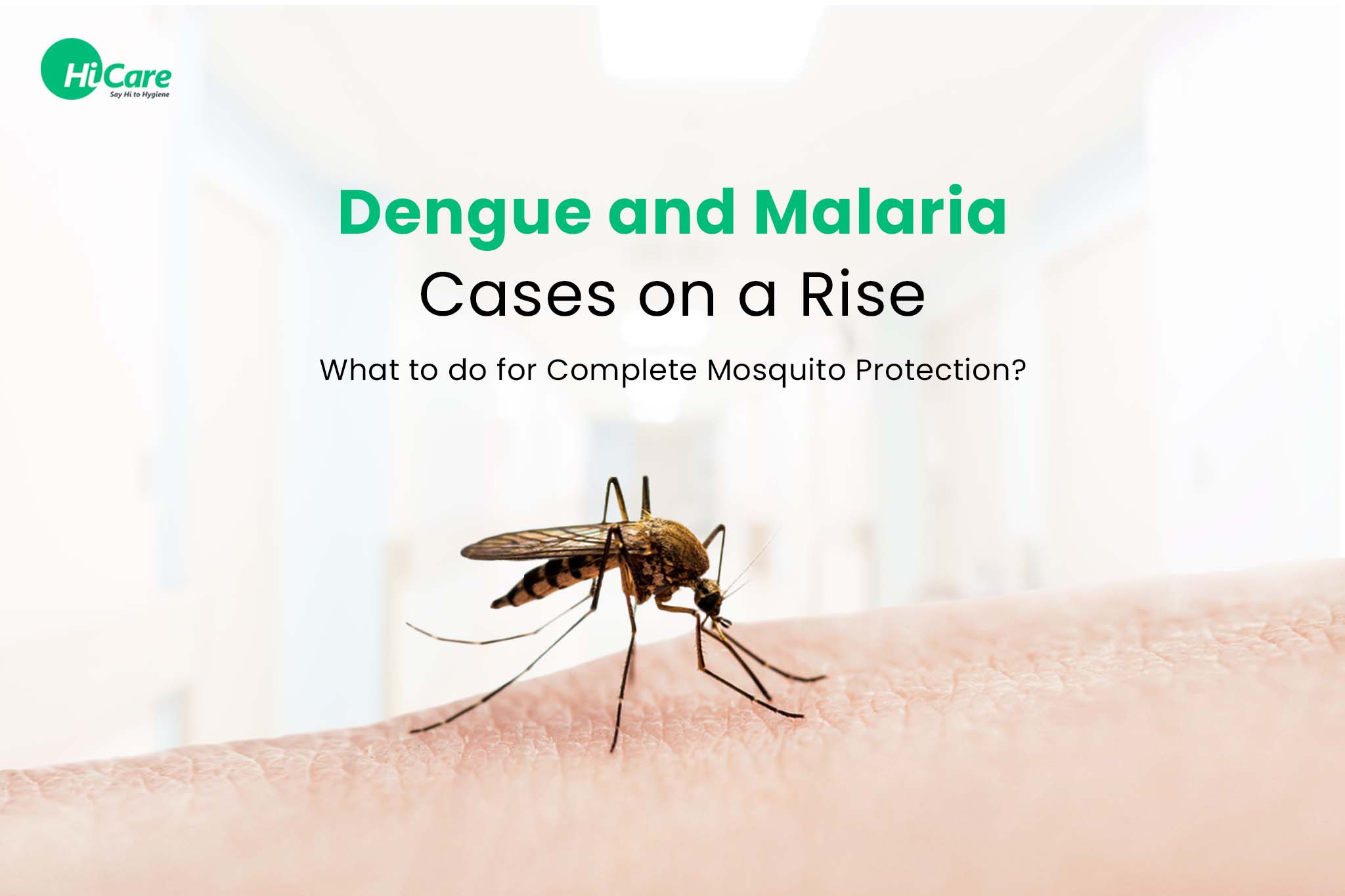With heavy rains and flood-like conditions in different parts of the country, there is a massive surge in dengue and malaria cases. There is a significant increase in the total number of dengue and malaria cases this year as compared to the ones at this point of time in 2021. It won’t be wrong to call the rainy season as the season of mosquitoes and vector-borne diseases.
Despite the civic bodies trying all the anti-larval measures, the curve of the mosquito breeding graph is not settling down. So, how to ensure complete mosquito protection in such a scenario?
In this post, we aim to throw light on some effective measures of mosquito control to keep the risk of mosquito-borne diseases like dengue, malaria, and chikungunya at bay. We will also discuss what to do when a dengue mosquito bites you.
Why is There a Rise in Dengue and Malaria Cases?
Before discussing in detail how to protect from mosquitoes, we want you to be aware of the reasons for such a spike in dengue and malaria cases. The possible reasons for the shocking rise in such vector-borne diseases could be:
- Rainy Season: Mosquitoes need warmth and moisture to breed. The rainy season is a treat for mosquitoes to breed at a rapid speed due to the abundance of both moisture and warmth.
- Open Breeding Grounds: With continuous rainfall, there is a significant increase in the number of puddles, which act as open breeding grounds for mosquitoes.
- Lack of Awareness: Another possible reason for the massive increase in the number of dengue and malaria cases across the country is the lack of awareness. People knowingly or unknowingly tend to let water stand by in coolers, pots, and pools.
What Causes Dengue and Malaria Fever?
Dengue and malaria are both mosquito-borne diseases caused when an infected mosquito bites a person. Aedes is the dengue mosquito, whereas, Anopheles is the malaria mosquito. However, not all these mosquitoes spread dengue or malaria.
As mentioned earlier, these diseases are spread only if the mosquito that bites first bites a person infected with these diseases and passes on the infection to another person.
How to Protect Yourself from Dengue and Malaria?
So, what if there is a surge in the number of dengue and malaria cases, you can stay protected against these diseases by paying attention to some prevention tips.
Following are some useful ways to protect yourself from dengue and malaria:
- Wear Full-Length Clothes: One of the best ways for those searching for how to protect yourself from mosquito bites naturally is to minimize the exposure to your skin. Mosquitoes tend to bite those areas of your body that are left uncovered. So, the trick here is to wear full-length clothes to prevent mosquito bites.
- Don’t Let Water Stand-by: If you want to put a tab on the mosquito bites, don’t let them breed. For this, destroy their breeding grounds using insecticides. Every effort should be made to remove old tires and pots, to eliminate them from becoming mosquito breeding grounds. Check the rain gutters to ensure proper drainage to prevent stagnant water.
- Avoid Traveling to Areas with Many Cases of Dengue Fever: To minimize the chances of contracting dengue or malaria fever from mosquito bites, avoid traveling to areas that have a higher number of these diseases.
- Use Natural Mosquito Repellents: To be on the safer side both from mosquito bites and from the harmful chemical emission of artificial mosquito repellents, try using natural mosquito repellents. Options are galore when it comes to using organic or natural mosquito repellents like garlic water, lemongrass, lemon with cloves, catnip, lavender oil, peppermint, citronella oil, eucalyptus oil, camphor, neem oil, and vinegar.
- Stay Indoors and Keep Windows and Doors Closed: Another way to safeguard oneself against mosquito bites is by staying indoors as much as possible. Besides, you need to keep windows and doors closed to prevent the entry of these monstrous flying pests inside your premise. For this, you may also use window shields to let only fresh air come inside and no mosquitoes along.
- Use Effective Mosquito Repellents: Try putting a shield around your family against mosquitoes using effective mosquito repellents. Consider installing the new AutoMos Mosquito Repellent Dispenser to get 24×7 mosquito protection for 90 days. Launched by HiCare, AutoMos is India’s 1st revolutionary automatic mosquito repellent spray that offers a perfect mosquito solution at just Rs. 5 per day.
What to do if a Dengue Mosquito Bites You?
What if despite all the above precautions, you are still bitten by the dengue mosquito Aedes? Here are the steps to do if the dengue mosquito bites you:
- Consult a healthcare provider
- Do not self-medicate
- Take medicines like acetaminophen, paracetamol only after consulting your doctor
- Take ample amount of rest
- Eat a healthy and light diet
- Keep yourself hydrated with water and fresh fruit juices
- Monitor your blood platelet count
- Take papaya extract to increase your blood platelet count
Takeaway
In a nutshell, if you want 100% protection against mosquitoes and don’t want to take any chances, then book the ultimate 3X Mosquito Control Treatment from HiCare. The treatment has been designed to treat the walls, air, and water of your house to repel all kinds of mosquitoes. Consider spending on mosquito control treatment rather than on medical treatments if you or your family get affected by dengue or malaria.




